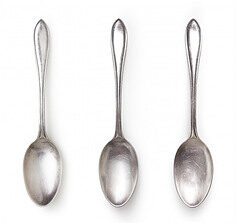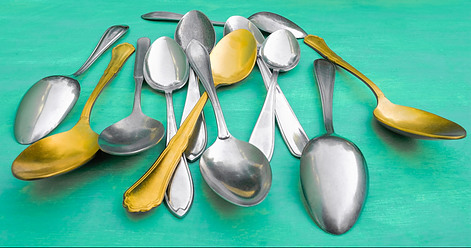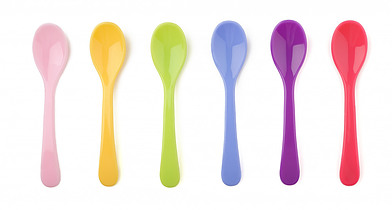What Is the Spoon Theory for Chronic Illness? A Useful Analogy to Foster Understanding
The spoon theory was developed by an individual with chronic illness as a simple and effective way of explaining what it is like to have a chronic illness that limits one’s ability to complete a myriad of “normal” daily activities.
an individual with chronic illness as a simple and effective way of explaining what it is like to have a chronic illness that limits one’s ability to complete a myriad of “normal” daily activities.
This analogy has since been used by many people with chronic illness as a way of explaining their unique circumstances and abilities to those that may not have experienced chronic illness themselves.
Here we will explore what the spoon theory is and how it can be used as a helpful social tool and self-pacing tool for those currently experiencing and healing through chronic illness.
The Spoon Theory for Chronic Illness
Chronic illness can be a difficult experience to articulate, and if you’ve never experienced it yourself, can seem confusing and hard to understand.
This is largely because of the many nuances that can be involved with chronic illness, the spectrum of severity (some chronic illnesses are mild, some moderate, and some very severe), and the often waxing and waning nature of one’s symptoms, particularly those consisting of chronic fatigue and pain. Chronic fatigue and chronic pain are 2 of the most commonly shared symptoms amongst a large majority of chronic illnesses, and can be 2 of the most challenging symptoms to manage and work through.
One day, someone with a chronic illness may have a moderate amount of energy and be able to accomplish a considerable amount of tasks throughout their day such as taking a shower, cooking meals, cleaning their home, and working. The very next day, they may have a much lower amount of energy and be incapable of accomplishing any of those things.
And then the next day, they may be somewhere in the middle.
Due to the limiting nature of these symptoms, those with chronic illness must give a great deal of forethought to accomplishing tasks that others may not think twice about.

The spoon theory was developed to articulate this, by a woman suffering from the autoimmune condition, lupus.
In her attempt to explain her energy restrictions, physical capabilities (and lack thereof), and waxing and waning symptoms to a friend, she explained it as though spoons represented units of energy.
She gave her friend a handful of spoons and explained that each day begins with a number of spoons that can vary from day to day. Each and every daily task takes 1 spoon to accomplish. When you run out of spoons, you are then unable to participate in any activity or accomplish any task, as your energy reserves and abilities have been used up for the day.
Each day, symptoms can present differently, so the amount of spoons you have for any given day depends on how you feel when you wake up that day.
So say for example, you wake up and take a shower. Your shower equals 1 spoon. Then, you get dressed, which takes another spoon, as this activity takes a certain degree of energy and requires mobility. Then, you make yourself breakfast, which takes another spoon to accomplish.
By this time, you have used 3 of your spoons, and your ability to continue with any other tasks that day depends on how many spoons you woke up with. If you woke up with 3 spoons that day, then you must return to bed after breakfast because your fatigue is now debilitating and your body is in a great deal of pain from moving around while using your allotted spoons.
However, if you woke up that day with 10 spoons, you would be able to continue accomplishing more tasks.
Chronic illness can involve a great degree of unpredictability, so it is important to note here that someone may start the day feeling as though they have a certain number of spoons, but as the day goes on, they run out sooner than they had anticipated or hoped.
Furthermore, if insomnia or sleep disturbance is part of one’s chronic illness, as is very common, they may have never been able to get to sleep the night before, “beginning” the day with 0 spoons the following morning.
Spoons can also be used to represent the necessity of having to plan ahead when you are dealing with chronic illness.
For example, on one day if you wake up and have 7 spoons, but know that you have to go grocery shopping the following day, you would not use all of your spoons that day because you know the following day is going to take up a good amount of your spoons and if you used all 7 spoons that day, you may not wake up the next day with enough spoons to accomplished your planned tasks.
If someone does not have a chronic illness (and therefore has consistent energy throughout their day and no chronic pain), activities such as getting up, taking a shower, and eating breakfast are not given much thought, and their day is essentially beginning after those tasks have been accomplished. Furthermore, grocery shopping would be considered a simple task for someone without a chronic illness, as this wouldn’t involve a great deal of forethought in preparation for one’s physical capacity to be able to complete the task.
The spoon theory is used to paint the picture of what chronic illness is like for those that have not experienced such circumstances firsthand.

The Spoon Theory Fosters Social Understanding
As the spoon theory helps to illuminate, when you have a chronic illness that greatly limits your capacity to complete seemingly simple daily activities, you are presented with a variety of different challenges.
One of these challenges is social activities.
Because those with chronic illness must prioritize and reserve their energy (or their number of spoons) in order to be able to maintain daily hygiene and care for themselves, little is often left for activities outside of this reserve.
For example, if someone with a chronic illness woke up that day with 5 spoons, and use all 5 bathing, preparing meals, and going to a doctor’s appointment, they have zero spoons left by the evening to go to a friend’s birthday party or meet someone for dinner. It simply isn’t a task that they are able to complete that day.
This does not mean that they don’t want to, it means that they are unable to given the state of their body and their symptoms that day.
Explaining this to loved ones and acquaintances by using the spoon theory can be a simple and effective way of explaining why those with chronic illness are unable to participate in various social activities.
The Spoon Theory for Self-Pacing
While the spoon theory is an excellent social tool to foster understanding, it is also a helpful tool for the chronic illness sufferer themselves.
Self-pacing is a necessity to heal from most illnesses, especially chronic illnesses. This involves pacing oneself each day so as to not push oneself too far. Pushing oneself too far can slow or impede healing, and it can exacerbate or create symptoms because the body is being pushed beyond its current limits.
For example, if someone with a chronic illness used more than their set amount of spoons for that day, they may experience heightened fatigue, digestive upset, and headache symptoms the following day as a result. They would likely also begin that following day with much fewer spoons.
Self-pacing is also required if you want to be able to complete a certain degree of tasks for any given day, so the individual with chronic illness can use their number of spoons to plan out their day, and pace themselves between each task to make sure they are able to complete everything.
If you start the day by identifying the number of spoons that you feel you have that day, you can pace yourself so that you are better able to both accomplish all of your tasks and also not push yourself too far.
For example, if you start your day with 6 spoons and know that you have an appointment in the late afternoon, you won’t use up all 6 of your spoons in the morning and early afternoon, you will reserve some spoons for later in the day.

What Is A “Spoonie”?
The spoon theory has become widely used by many, and those with chronic illness can often refer to themselves as “spoonies”. A “spoonie” is someone who has one or multiple chronic illnesses that require them to manage a variety of symptoms throughout their daily life.
“Spoonies” can also use the spoon theory for symptoms other than chronic fatigue and pain. Any symptom can effect the daily life of the person experiencing it, so anything from digestive upset to anxiety to migraines and everything in between would be a relevant symptom in this context.
More on what chronic illness is and some of the most common symptoms can be found here.
Some of the social and emotional impacts of chronic illness can also be found in the following 2 articles:
- The Trauma of Chronic Illness: An Important Consideration
- What to Do When Some People In Your Life Don’t Believe You Are Really Sick With a Chronic Illness

In Closing…
As we’ve explored here, the spoon theory is a helpful analogy to foster social understanding and help those with chronic illness accomplish their daily tasks more effectively.
Having and healing from chronic illness impacts essentially every area of a person’s life, yet as healing continues, we can wake up each day with more and more spoons.
If you or someone you love is currently healing through one or multiple chronic illnesses, I send you lots of love, peace, and strength. You’ve got this, you are healing, and your future is so bright 💜.